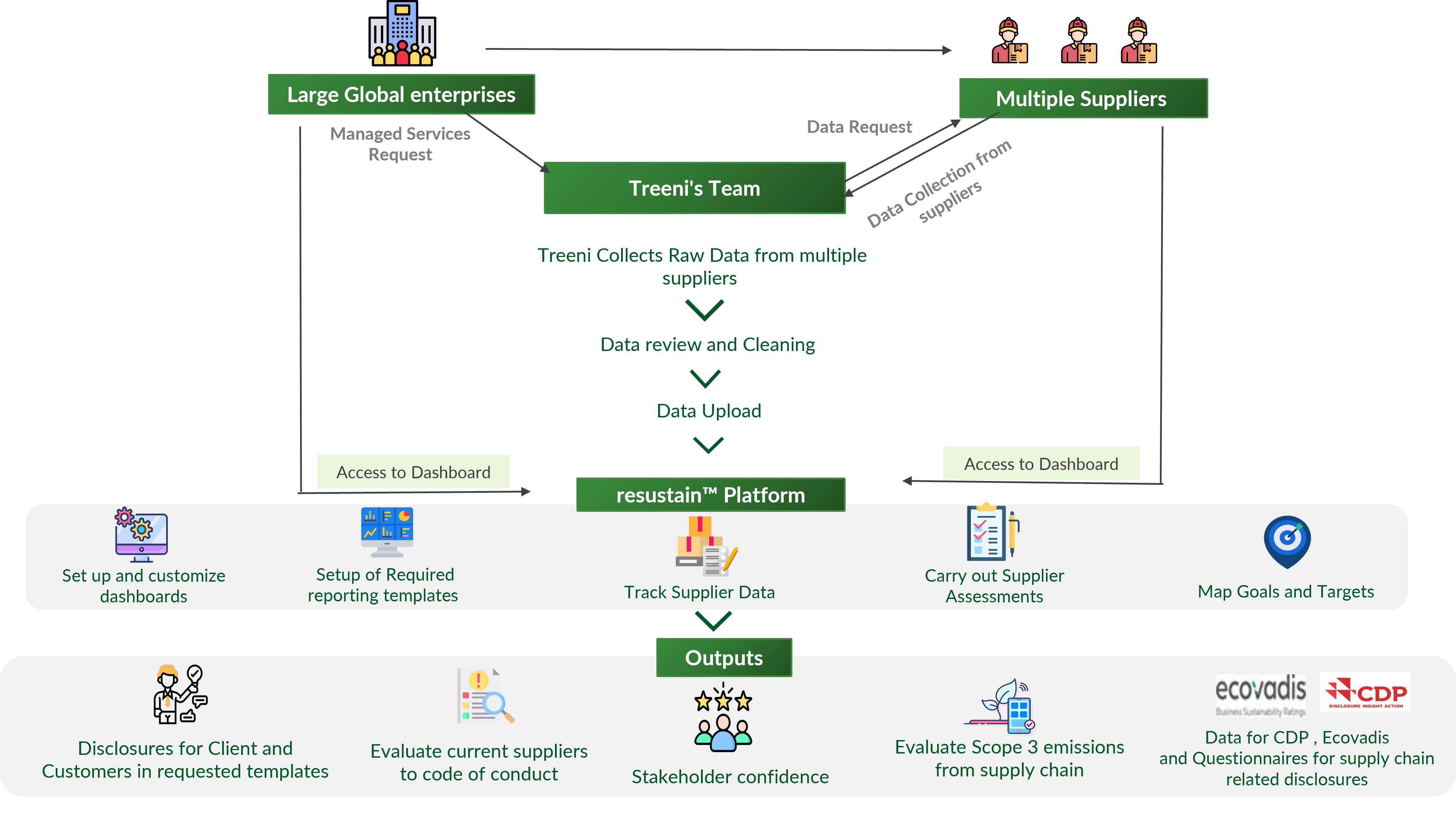How Procurement Teams Can Improve Supply Chain Visibility and Compliance
23 October, 2023

Offshoring makes revenue sense but can be a compliance nightmare.
According to a report, 68% of United States consumer products companies outsource parts of their workforce. Why? Because it makes business and financial sense. The US is home to many multinational corporations with supply chains stretched around the globe. These companies have established their roots in the US but rely on a vast network of suppliers, manufacturers, and distributors across continents.
Lower labor costs, lower overheads and higher margins are primary reasons nudging enterprises to offshore their manufacturing and operations. India is the leading outsourcing service provider in the IT industry for the US. A recent report from Deloitte indicates that 76% of executives outsource IT functions, and 96% of executives cited outsourcing service providers as the source for their data development and analytical capabilities.
The trend isn’t limited to any one particular industry.
-
Apparel: The apparel industry is also heavily reliant on global supply chains. Many major brands, such as Nike and Adidas, source their products from factories in Asia.
-
Automotive: The automotive industry is another sector with global supply chains—many major automakers, such as Ford and General Motors, source components worldwide.
-
Food and beverage: The food and beverage industry also has global supply chains. For example, many US companies source coffee from Brazil and chocolate from Africa.
Laws Governing the Supply Chain in the US:
Sustainability and ethical considerations have led to the government laying down multiple laws and regulations to govern supply chains effectively. Here are a few examples
-
Dodd-Frank Wall Street Reform and Consumer Protection Act: This legislation includes provisions requiring companies to disclose their use of "conflict minerals" (e.g., tin, tantalum, tungsten, and gold) originating from war-torn areas, as well as their efforts to ensure their supply chains are free from human rights abuses.
-
California Transparency in Supply Chains Act: Companies doing business in California with annual revenues exceeding $100 million must disclose their efforts to eradicate human trafficking and slavery from their supply chains.
-
Modern Slavery Act: While not a US law, it impacts US-based companies operating in the UK and Australia. It mandates disclosure of efforts to combat modern slavery in the supply chain.
-
Eco-Friendly Regulations: Environmental regulations like the Toxic Substances Control Act and the Clean Air Act affect industries with cross-region supply chains, especially those involving hazardous materials or emissions.
-
The Foreign Corrupt Practices Act: The FCPA prohibits US companies and employees from bribing foreign government officials to obtain or retain business.
Herein lies the primary pain point of many enterprises.
A large part of enterprise operations and manufacturing are handled by supply chains, making them increasingly dependent on the data provided by suppliers to comply with the above regulations. The fact that many suppliers operate across multiple countries further makes it difficult to collate data.
Procurement Challenges:
Procurement teams coordinate with hundreds and sometimes thousands of suppliers while making purchase decisions. They often have to deal with suppliers from different industries they may not have expertise in. Moreover, while outsourcing your supply chain overseas makes revenue sense, it can be a logistic and compliance nightmare.
It has many challenges arising from the difference in geography and administration - like data reporting, data transparency, dealing with different governing bodies, different compliance regulations, and framework misalignment, among many others. It can further the procurement team’s difficulty in ensuring ethical sourcing and verifying their supplier’s ESG commitment.
While technological solutions like cloud computing help, suppliers often need help to meet enterprise demands. The lack of capital, digital infrastructure, and human resources makes it challenging for supply chain partners to provide adequate and accurate data.
Solutions:
With its dedicated team of experts, Treeni’s resustain™ platform and Managed Services can bridge the knowledge and logistic gap between enterprises and suppliers. Here’s how -

Data:
Sourcing, cleaning, and managing data can be an extensive function and a difficult task for suppliers to pull off with their limited resources. Treeni’s dedicated team can help suppliers gather all the raw data from multiple sources and process it into insightful analytics for the enterprise.
Our team can help suppliers pull data from multiple online and offline sources - like power or water bills on paper, poorly formatted Excel sheets, or cloud storage. Our team of experts cleans and reviews the collected data and feeds it into the resustain™ platform’s dashboard to provide real-time and accurate insights to enterprises' procurement teams and suppliers.
Visibility:
The added level of insights derived from the visualization of real-time and granular data equips procurement teams with the required visibility for future purchase decisions. Moreover, our dedicated team helps you set up and customize your ESG dashboard to align with compliance requirements using the platform’s reporting templates and emission libraries.
Enterprises can use this dashboard to track their supplier’s progress. Leveraging our industry and region expertise, our team assists enterprises based in the US to assess their overseas suppliers and provides customized suggestions to achieve the set goals and targets.
Conclusion:
Globalization has erased boundaries and brought everyone together, but everyone isn’t on the same page. Treeni’s specialized Managed Services bridge this gap by hand-holding suppliers to provide supply chain visibility and fulfill reporting requirements by the US enterprise.
What does it mean for enterprises?
-
Evaluation of current suppliers to code of conduct
-
Improved clarity for better procurement decisions
-
Precise assessment of scope-3 emissions from the supply chain
-
Data for CDP, Ecovadis, and Questionnaires for supply chain-related disclosures
-
Disclosures for clients and customers in required templates
-
Improved stakeholder engagement and confidence
Is this something that would interest you? Please fill out the form below, and let’s get in touch.
__________________________________________________________________________________________________________________________________________________

